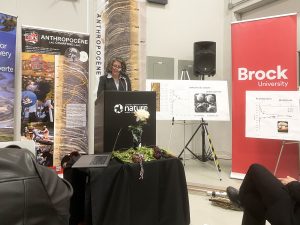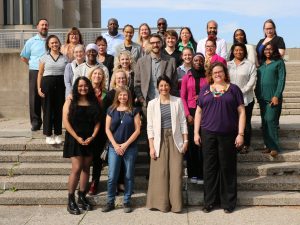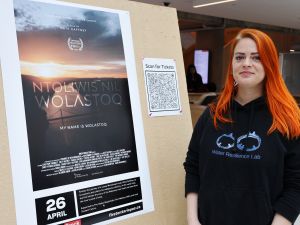 Brock University PhD student Jeremia Coish, left, and Associate Professor of Health Sciences Adam MacNeil work in BrockUniversity’s Level 3 containment laboratory. Photo by Mariana Garrido de Castro.
Brock University PhD student Jeremia Coish, left, and Associate Professor of Health Sciences Adam MacNeil work in BrockUniversity’s Level 3 containment laboratory. Photo by Mariana Garrido de Castro.Russia made headlines this week with claims it had approved an early COVID-19 vaccine, despite it being tested in fewer than 100 people. North American researchers have also proposed and then walked back on unorthodox modifications to Phase III trials with the goal of accelerating vaccine delivery.
Against the unprecedented backdrop of scientists around the world taking careful steps to move more than 165 vaccine candidates through clinical trials at a time of urgent global need, researchers are sounding the warning bell.
Their message: don’t cut corners on clinical trials.
“The idea of skipping or reducing the Phase III testing period will re-emerge again and again during the fall because of the extraordinary pressure for a vaccine against the SARS-CoV-2 virus,” says immunologist Adam MacNeil, Associate Professor of Health Sciences at Brock University.
“The checks and balances in Phase III are there for a reason; undermining them could have terrible and multifactorial consequences well beyond the underlying biology,” he says.
Phase III clinical trials for vaccines and medicines, which can last several years and involve up to 30,000 or more research participants, are designed to test broadly for safety and effectiveness, and to identify any rare complications that may arise in a small number of people.
MacNeil’s PhD student, Jeremia Coish, says one rare complication to look out for is antibody-dependent enhancement (ADE), a paradoxical immune phenomenon typically associated with dengue hemorrhagic fever.
ADE occurs when a previous immune response to a virus renders an individual more susceptible to a subsequent similar infection.
There is laboratory evidence of ADE with other types of coronaviruses. However, it’s unknown whether ADE exacerbates SARS-CoV-2 infections, as little is yet known about the interaction of this virus with the immune system.
Scientists internationally have said ADE should not be ignored as a possible complication in COVID-19. Additionally, Coish said ruling out ADE as a potential COVID-19 manifestation would only enhance the informed consent process and increase public trust in a vaccine.
“As the entire world sits on the edge of a knife watching the scientific community race toward a solution, delivery of a sub-optimal COVID-19 vaccine would significantly contribute to erosion of public trust in scientific pursuit and public health and jeopardize the integrity and success of immunization programs around the world,” say Coish and MacNeil in their recent commentary “Out of the frying pan and into the fire? Due diligence warranted for ADE in COVID-19,” published in the journal Microbes and Infection in June 2020.
In their commentary, Coish and MacNeil say the stakes are high because “a vaccine that elicits robust SARS-CoV-2-specific neutralizing antibodies will be the most effective way to produce herd immunity, minimizing COVID-19-related deaths.”
MacNeil says not fully exploring ADE and other potential rare complications during the Phase III research process could compromise vaccinations at a time when vaccine hesitancy is considered a threat to global health.
“Vaccination programs have immeasurably elevated quality of life in our communities and we cannot allow the current pressure to compromise the trust we have built at a time when it is perhaps most vulnerable,” says MacNeil.









